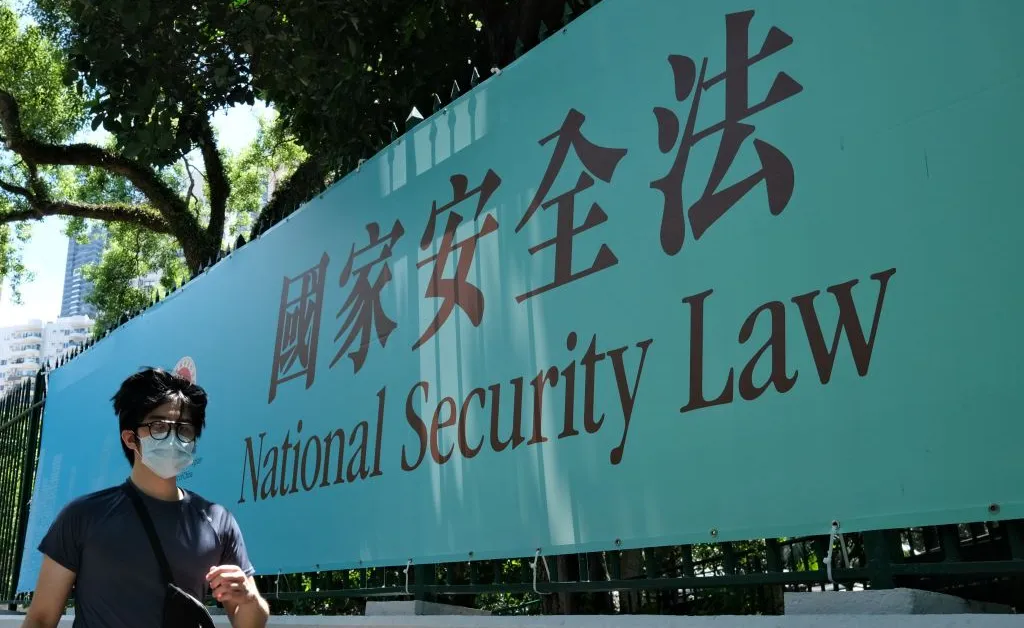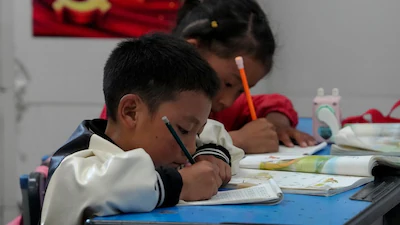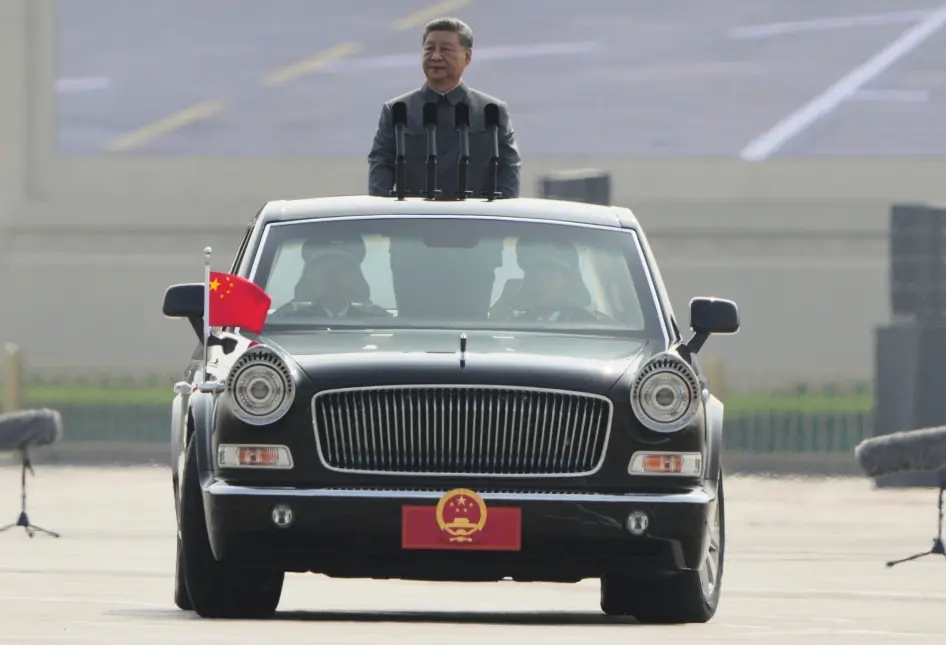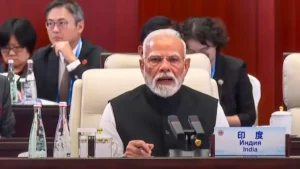The Dystopian Reality Of Hong Kong’s New National Security Law
Hong Kong has enacted a new national security law, immediately raising international concern about worsening prospects of human rights. Critics fear the new law, which is called Article 23 and came into effect at midnight on March 23rd, will restrict freedoms and damage Hong Kong’s reputation as a global financial center. Passed unanimously by pro-Beijing lawmakers, the law was rushed through to address perceived security gaps. An earlier attempt to pass article 23 in 2003 had been shelved following widespread public protest involving over 500000 participants.
According to a report by Al Jazeera, Hong Kong Chief Executive John Lee voiced his satisfaction with the national security law’s implementation. He believed that it fulfilled the expectations of the Chinese government. Lee emphasized that enacting this law was Hong Kong’s legal duty under its mini-constitution, established when Britain handed over the city. Lee also perceived the law as a tool to stop the violent protests that erupted in 2019, when many demonstrators dressed in black opposed Beijing’s growing control.
In 1997, Hong Kong, which used to be a British colony, was handed back to China. An agreement called “one country, two systems” was set up to make sure Hong Kong could keep a high degree of autonomy and its freedoms, even though it was now part of China.
The new Article 23 significantly broadens the definition of crimes against national security. Criticism of China’s Communist Party leadership is now considered “sedition” and carries a harsher punishment of up to 10 years in prison. The law also establishes severe penalties for various offenses: life imprisonment for the most serious crimes like treason and sabotage, 20 years for espionage, and 14 years for foreign interference. Furthermore, the law grants broad powers to authorities. City officials can create new offences punishable by up to seven years in jail, and the security minister can target activists abroad by revoking passports. Police now have the right to detain suspects for 16 days without charges, significantly longer than the previous 48 hours, and restrict their access to lawyers and communication with others.
Several leading countries have spoken out against the law, including the United States, the European Union, Japan, and the United Kingdom. British Foreign Minister David Cameron expressed particular concern that the law would restrict basic rights and freedoms in Hong Kong. US Secretary of State Antony Blinken echoed these worries, fearing the law could be used to suppress dissent and harm Hong Kong’s standing as a global financial center. Additionally, Australia, the UK, and Taiwan have all advised their citizens to be cautious when traveling to Hong Kong.
Human Rights Watch criticized the new security law in Hong Kong, stating it will lead to widespread repression. Elaine Pearson, the Asia director for the organization, feared the law will severely restrict freedoms. She warned that simply owning a book critical of the Chinese government could now lead to a lengthy prison sentence. Human Rights Watch also took a swipe on Hong Kong government’s claim of public consultation on Article 23. The government reportedly held a four-week consultation in February, with presumably 98 percent submissions supporting the proposal, dismissing concerns raised by international human rights groups and Hong Kongers abroad – many of whom have recently left the city. This raises questions about whether the consultation process truly reflected the views of Hong Kong residents.
China, however, says the new security law, implemented in response to pro-democracy protests in 2019, was necessary to restore order after sometimes violent demonstrations. Earlier, China had promulgated another tough security law in 2020. Hong Kong experienced a significant shift in 2020 with the introduction of China’s National Security Law (NSL). This law was a direct response to the large-scale protests that had gripped the city in 2019. The NSL criminalized a broader range of actions seen as dissent, effectively limiting free speech and protest. Additionally, the law reduced Hong Kong’s autonomy in various ways, raising concerns about the territory’s ability to govern itself.
The NSL immediately cracked down on the city’s pro-democracy movement. Many peaceful protesters and even elected representatives were arrested and charged. Civil society organizations, independent labor unions, and even popular media outlets were throttled. Since the enactment of the NSL in 2020, Apple Daily and Stand News, two local media platforms reputed for critical coverage of the government, were forced to shut down after the arrest of their senior management.
Hundreds have been arrested under the law, and some have been formally charged. China argues that the law applies equally to everyone and has brought stability, but also maintains that individual freedoms are not limitless.
However, observers see the new law, which was passed without much debate, as a symbol of Beijing’s control. The focus on security comes at a time when Hong Kong’s economy is struggling, facing competition from mainland China and losing foreign businesses due to Beijing’s increasing control. Even the European Union is worried about the law’s impact on Hong Kong’s future as a financial hub.
Many residents are fearing a lack of opportunity have already left Hong Kong and more are likely to follow. They deserve support, especially those facing intimidation by police who have offered bounties for some activists who left the city. Britain, the former colonial power, is seen as having a particular responsibility. Critics argue Britain showed little interest in democracy for Hong Kong until it was too late and has done little to defend the rights it promised. The current UK government’s crackdown on protests makes it easier for China to accuse Britain of hypocrisy. However, China’s main concern isn’t hypocrisy; it’s erasing any memory of a different path for Hong Kong after it has silenced dissent.
There are serious concerns that the new law will significantly restrict human rights in Hong Kong, going beyond the limitations already imposed by the National Security Law. Some critics have claimed that the ordinance violates fundamental freedoms protected by Hong Kong’s Basic Law and the International Covenant on Civil and Political Rights (ICCPR). Evidence of this chilling effect is already forthcoming, with US-funded media outlet Radio Free Asia announcing its departure from Hong Kong.
Radio Free Asia (RFA), funded by the US government, closed its Hong Kong office due to China’s Article 23. President Bay Fang cited safety concerns after being labeled a “foreign force” by Hong Kong authorities. Police criticized RFA’s interview with activist Ted Hui, while Security Minister Chris Tang accused RFA of spreading misinformation about the law, raising press freedom fears. Financial professionals fear the law’s similarity to China’s secrecy rules may drive businesses away, with journalists worried about inadvertently violating vague secrecy laws.
The new national security law in Hong Kong, spearheaded by China, signifies a perilous regression in human rights. Branded as Article 23 and hastily implemented on March 23rd, it amplifies fears of curtailed freedoms and tarnished global financial standing. Pushed through by pro-Beijing entities, it echoes past attempts thwarted by mass protests. Hong Kong Chief Executive John Lee’s endorsement aligns with Chinese interests but threatens fundamental liberties. The law’s draconian provisions, stifling dissent and press freedom, are internationally condemned. China’s tightening grip and disregard for autonomy augur a grim future for Hong Kong’s once-vibrant democracy.
*Dr. Maheep is a leading analyst of International Relations and Global Politics. He contributes regularly on the issues of utmost importance for humanity.











